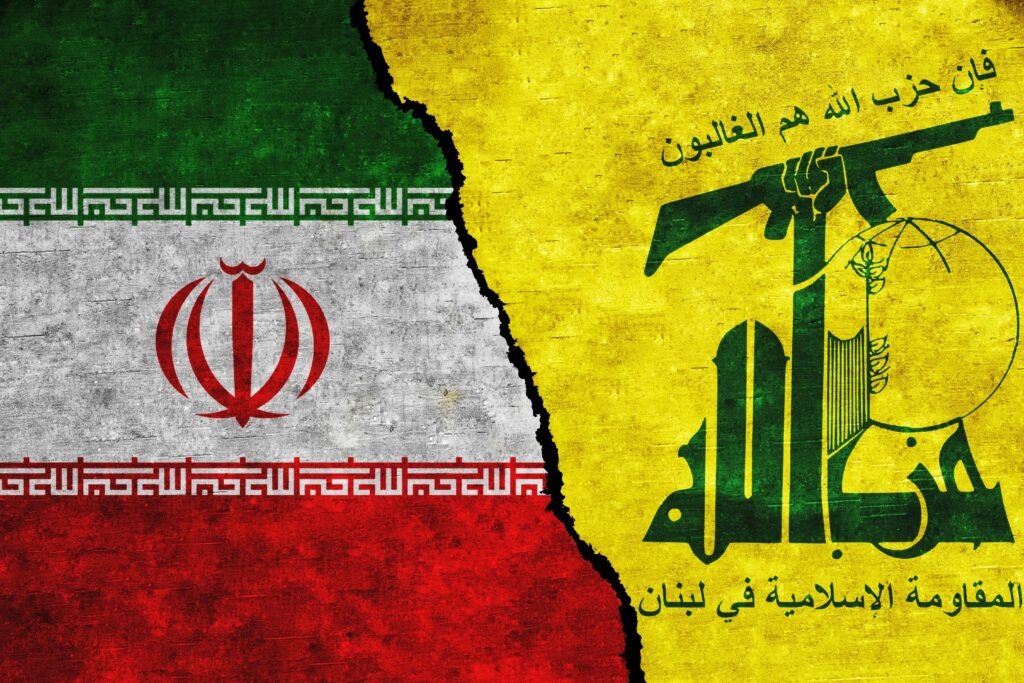IN THE MEDIA
Want to stop an Israel-Hezbollah war? Look to Teheran
September 30, 2024 | Bren Carlill

If the US and the West want calm on the Lebanese border, it needs to find the will to make Iran pay the price for its proxy warfare.
Australian Financial Review – Sep 29, 2024
Restoring calm across the Israel-Lebanon border requires the international community to accept something about which it has long been in denial: Iran is fighting a cold war with the West. Hezbollah-Israel fighting is merely proxy warfare.
That fighting has dramatically ramped up over the last two weeks. Israel spent 12 months responding in a tit-for-tat fashion to 8,000 Hezbollah rockets – hitting a rocket launcher here, a weapons store there. But over the past two weeks, Israel has successfully targeted Hezbollah’s entire leadership structure, as well as many of the tens of thousands of heavy payload missiles hidden in specially built spare rooms and basements in houses and apartments across Lebanon.
This culminated in the killing of Hezbollah leader Hassan Nasrallah in his underground bunker in the suburbs of Beirut over the weekend. Nasrallah has been an arch-terrorist for more than 40 years, responsible for the deaths of not only hundreds of Israelis, but also hundreds of American and French soldiers and officials, and Lebanese critics of Hezbollah. Like the US killing of Bin Laden in 2011, tracking and killing Nasrallah was a tremendous intelligence achievement.
Despite what it looks like, neither Israel nor Hezbollah want to go to war with each other.
For Israel, full-on war would unleash Hezbollah’s 150,000 rockets and missiles into Israel’s civilian, industrial and commercial centres. Israel’s much vaunted Iron Dome would be overwhelmed. Thousands would likely die, and the economy would be shattered.
But Israel is also in an untenable position, where 60,000 of its residents have been displaced by incessant Hezbollah fire since 8 October last year. The attacks over the last weeks – against Hezbollah’s communication devices, then physical meetings of its leaders, then caches of its ballistic missile, then its leader and headquarters – was a calculated gamble that it could send a clear message that wouldn’t escalate into full-scale war.
Hezbollah is aware of a significant change in Israeli military objectives. In years past, when its enemies attacked it, Israel was willing to merely degrade those enemies’ military capabilities in order to buy a few years of quiet. This happened in 2006 (against Hezbollah), in 2012, 2019 and 2022 (against Islamic Jihad), and in 2006, 2008, 2012, 2014 and 2021 (against Hamas).
But the 7 October attacks cured Israel of that tactic. Israel is no longer willing to tolerate a well-armed genocidal terrorist army on its borders.
Hezbollah knows this. And it knows that a full-scale war with Israel means its end.
Iran doesn’t want to risk this, either. Teheran founded Hezbollah and has given it hundreds of millions of dollars each year, along with its missile arsenal. Hezbollah is, above all, an insurance policy for the Iranian nuclear program. And that program is really close to fruition; Iran doesn’t want to lose its Hezbollah shield right now.
Iran has been working for decades to become the regional hegemon. To do so, it has committed itself to removing the US from the Middle East, and getting rid of Israel.
Hezbollah is the jewel in the crown of an Iranian network of sophisticated proxies. They have been attacking Western interests, such as shipping and US soldiers. Iran has also co-ordinated the attacks on Israel from Hamas, Hezbollah, the Houthis in Yemen, and even groups from Iraq.
Israel and the US have pummelled those pulling the trigger, but Iran – ultimately responsible – has yet to pay a cost.
If the world wants calm on the Lebanese border, if it wants the cost of living to go down by having shipping once again pass through the Red Sea without fear of attack, if it wants Russia to stop attacking Ukrainian civilians with Iranian-supplied weapons, then it needs to find a way to make Iran pay a price for its malfeasance.
The Iranian regime is brittle, and its leadership is highly sensitive to pressures that could topple it. It has developed proxies because it is too weak – both internally and militarily – to fight wars itself. Credible sanctions, diplomatic pressure, support for Iranian civil rights activists, and calibrated military pressure – say, a missile strike on its drone and missile factories – would send a clear message that the world is finally ready to hold Iran accountable.
Making Iran accountable would quickly see Teheran tell Hezbollah to draw back. The US has offered a compromise deal that keeps Hezbollah intact but removes its forces from the Israeli border. It pleases neither Israel nor Hezbollah, but would stop the fighting. Israel would take it. Hezbollah needs a nudge, and only Iran can provide it.
The West, in turn, needs to nudge Iran – but first it will have to overcome its refusal to see what Iran is up to.





